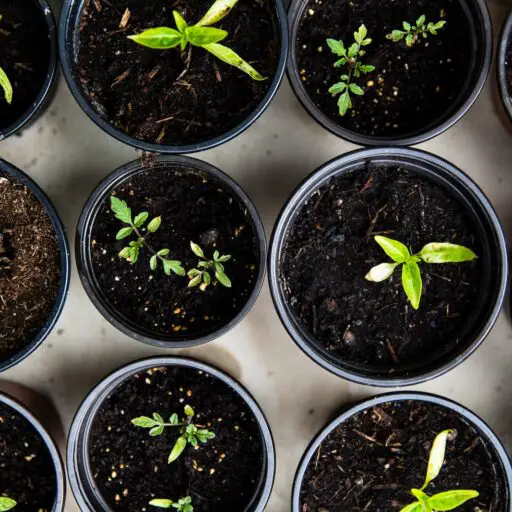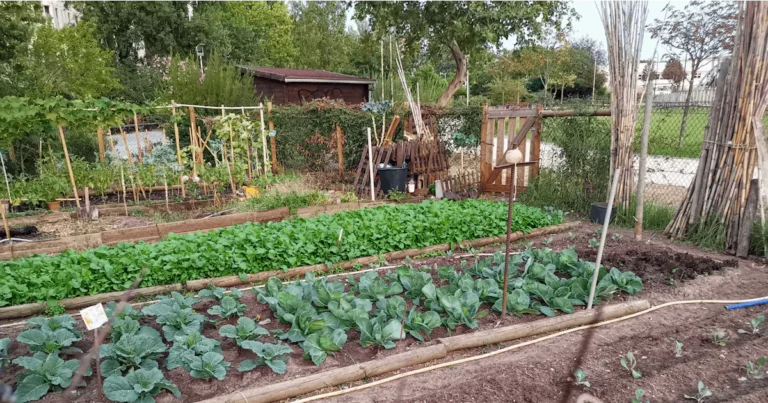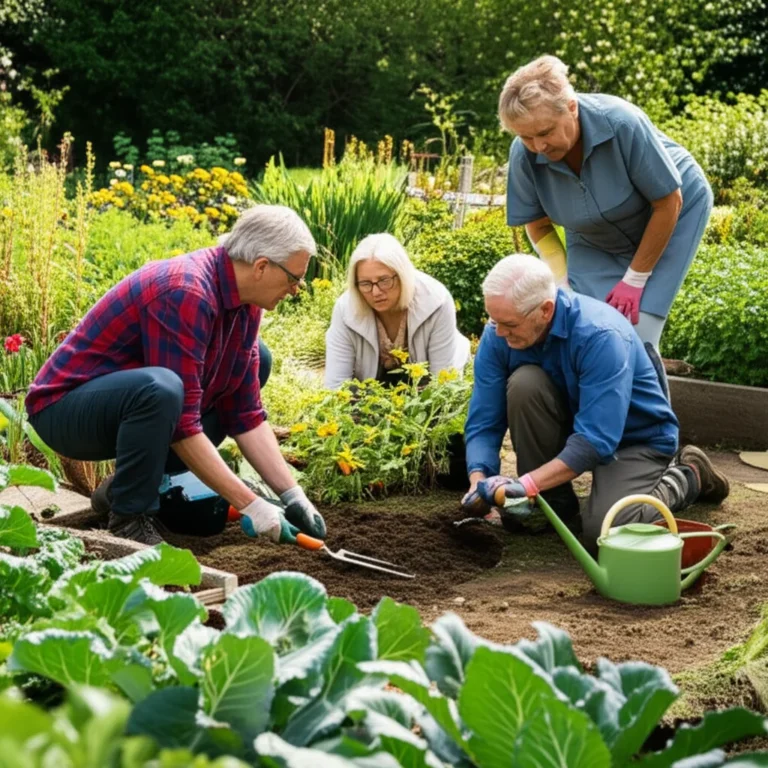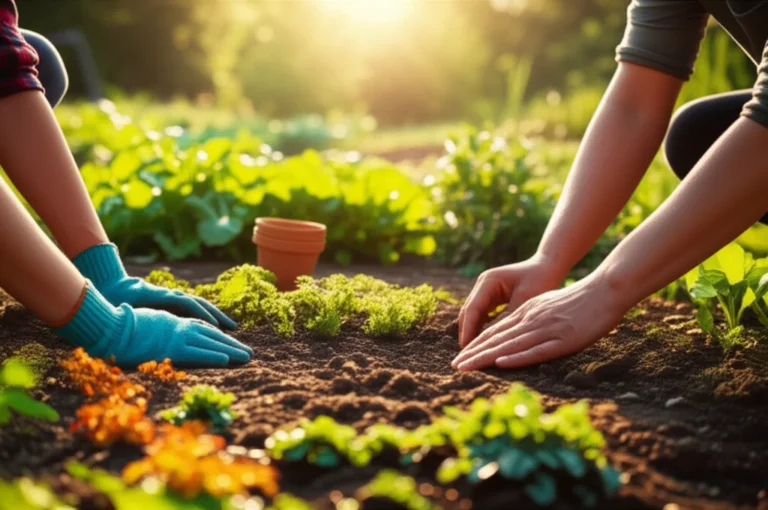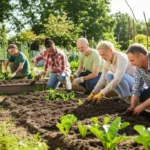Support our educational content for free when you purchase through links on our site. Learn more
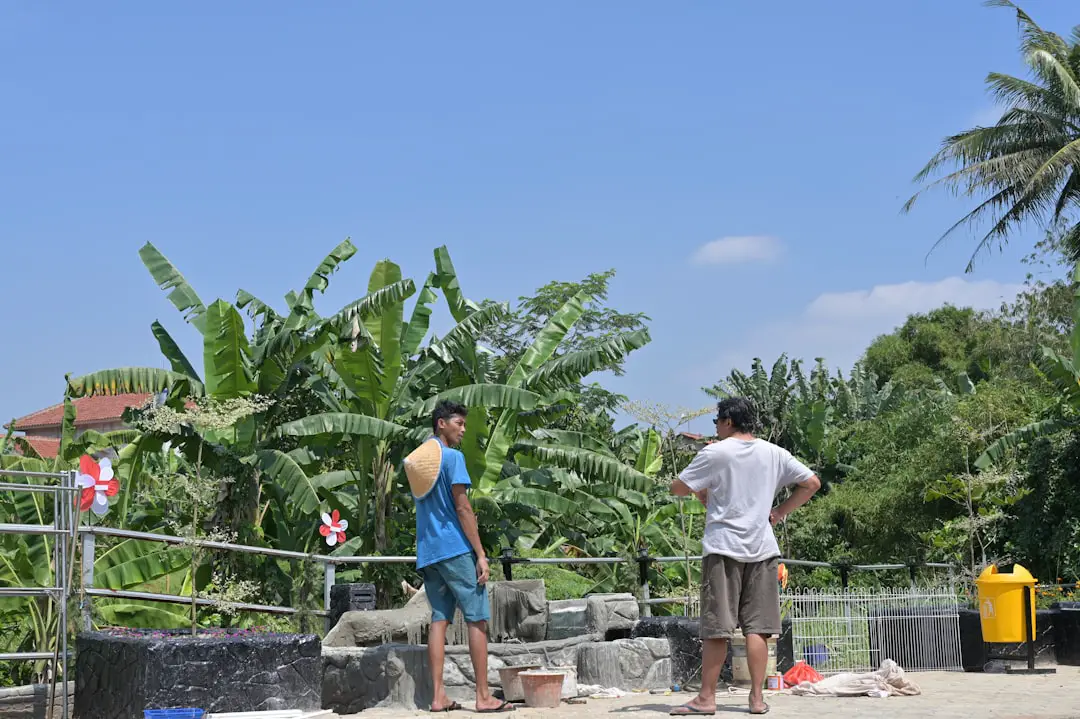
Have you ever noticed how a simple patch of soil, a handful of seeds, and a little sunshine can transform not just your backyard—but your entire well-being? At Community Gardening™, we’ve seen firsthand how gardening does more than just grow plants; it grows stronger bodies, calmer minds, and tighter-knit communities. But what exactly makes gardening such a powerhouse activity? Stick with us as we dig into five incredible benefits of gardening that might just inspire you to grab a trowel and start planting today.
Here’s a little teaser: Did you know that getting your hands dirty can actually boost your mood by increasing serotonin levels, thanks to a friendly soil bacterium called Mycobacterium vaccae? Intrigued? That’s just one of the many fascinating ways gardening nurtures your mind and body. Keep reading to uncover the full story—and discover how you can reap these rewards in your own garden.
Key Takeaways
- Gardening improves physical health by providing moderate exercise and boosting vitamin D levels.
- Mental well-being benefits include reduced stress, anxiety, and depression through nature connection and soil microbes.
- Environmental impact: Growing your own food lowers your carbon footprint and supports biodiversity.
- Community gardening builds social bonds and combats food insecurity in urban areas.
- Sustainable practices like composting and water conservation make gardening eco-friendly and rewarding.
Ready to start your gardening journey? Check out these essentials:
- Seed Starting Mix by Espoma: Amazon | Espoma Official Website
- Raised Garden Beds by Greenes Fence: Amazon | Greenes Fence Official
- Compost Bin by FCMP Outdoor: Amazon | FCMP Official
Table of Contents
- 🌱 Quick Tips & Garden Goodness Facts!
- From Ancient Roots to Modern Revival: The Enduring Allure of Cultivating Green Spaces
- Unearthing the Treasures: Why Gardening is More Than Just a Hobby!
- 1. 💪 Grow Stronger: The Incredible Physical Health Benefits of Getting Your Hands Dirty
- 2. 🧘♀️ Cultivate Calm: How Gardening Nurtures Your Mental Well-being & Reduces Stress
- 3. 🌍 Green Thumbs, Green Planet: The Environmental Impact of Your Backyard Oasis
- 4. 💰 Harvest Savings: Boosting Your Budget & Food Security Through Homegrown Goodness
- 5. 🤝 Sowing Seeds of Connection: Building Community & Family Bonds Through Gardening
- Sprouting Success: Your Essential Guide to Starting a Thriving Garden
- Weeding Out Worries: Common Gardening Challenges & Our Expert Solutions
- Gardening for Everyone: Tailoring Your Green Space for Kids, Seniors, & Small Spaces
- The Rhythms of the Earth: Mastering Seasonal Gardening for Year-Round Joy
- Beyond Organic: Embracing Sustainable & Eco-Friendly Gardening Practices
- From Plot to Plate: Preserving Your Bountiful Harvest All Year Long
- Wrapping Up Our Garden Journey: Why Every Seed Sown Matters
- 🔗 Our Favorite Garden Resources & Recommended Reads
- ❓ Your Top Gardening Questions Answered!
- 📚 Digging Deeper: Our Trusted Gardening References
Quick Tips and Facts
As gardeners at Community Gardening™, we’re excited to share the numerous benefits of gardening with you. To get started, check out our article on How Can Community Gardens Help With Food Insecurity? 7 Powerful Ways (2025). Gardening is an excellent way to improve your mental and physical health, connect with nature, and build a sense of community. Here are some quick tips and facts to get you started:
- Gardening can reduce stress and anxiety by 30-40% according to a study by the National Institute of Health.
- Exposure to M. vaccae, a healthy bacteria found in soil, can increase serotonin levels and reduce symptoms of depression.
- Gardening can be a great way to improve your hand strength and boost your self-esteem.
- Community gardens can provide fresh produce and help reduce food insecurity in urban areas.
- Gardening can be a fun and rewarding activity for people of all ages, from children to seniors.
Benefits of Gardening for Mental Health
Gardening has been shown to have a positive impact on mental health, reducing symptoms of anxiety and depression. The physical activity and exposure to nature can help improve mood and reduce stress. Additionally, the sense of accomplishment and pride in growing your own food can boost self-esteem.
Benefits of Gardening for Physical Health
Gardening is also an excellent way to improve your physical health, providing moderate-intensity exercise and increasing vitamin D levels. The physical activity involved in gardening can help reduce the risk of chronic diseases, such as heart disease and diabetes.
From Ancient Roots to Modern Revival: The Enduring Allure of Cultivating Green Spaces
Gardening has been a part of human culture for thousands of years, with evidence of ancient civilizations cultivating plants for food, medicine, and spiritual purposes. Today, gardening remains a popular hobby and a vital part of many communities, providing fresh produce, recreational activities, and opportunities for social connection. Whether you’re a seasoned gardener or just starting out, there’s never been a better time to get involved in gardening and experience the many benefits it has to offer.
The History of Gardening
From ancient Egypt to modern-day community gardens, gardening has played a significant role in human history. The earliest recorded evidence of gardening dates back to around 2000 BCE, with the ancient Egyptians cultivating plants for food, medicine, and spiritual purposes. Today, gardening is a global phenomenon, with people from all walks of life coming together to grow their own food, connect with nature, and build community.
The Benefits of Community Gardens
Community gardens are a great way to get involved in gardening, meet new people, and give back to your community. These gardens provide a shared space for people to grow their own food, learn new skills, and connect with nature. Whether you’re looking to improve your mental health, get some exercise, or simply enjoy the outdoors, community gardens are an excellent resource.
Unearthing the Treasures: Why Gardening is More Than Just a Hobby!
Gardening is often seen as a hobby, but it’s so much more than that. It’s a way to connect with nature, improve your health, and build a sense of community. Here are just a few of the many benefits of gardening:
1. Grow Stronger: The Incredible Physical Health Benefits of Getting Your Hands Dirty
Gardening is an excellent way to improve your physical health, providing moderate-intensity exercise and increasing vitamin D levels. The physical activity involved in gardening can help reduce the risk of chronic diseases, such as heart disease and diabetes. Whether you’re digging, raking, or mowing, gardening is a great way to get some exercise and improve your overall health.
2. Cultivate Calm: How Gardening Nurtures Your Mental Well-being & Reduces Stress
Gardening has been shown to have a positive impact on mental health, reducing symptoms of anxiety and depression. The physical activity and exposure to nature can help improve mood and reduce stress. Additionally, the sense of accomplishment and pride in growing your own food can boost self-esteem. Whether you’re planting seeds, tending to your garden, or simply enjoying the outdoors, gardening is a great way to cultivate calm and reduce stress.
3. Green Thumbs, Green Planet: The Environmental Impact of Your Backyard Oasis
Gardening is not only good for you, but it’s also good for the planet. By growing your own food, you can reduce your carbon footprint and support local ecosystems. Additionally, gardening can help conserve water, reduce waste, and promote biodiversity. Whether you’re creating a backyard oasis or simply tending to a small herb garden, gardening is a great way to make a positive impact on the environment.
4. Harvest Savings: Boosting Your Budget & Food Security Through Homegrown Goodness
Gardening can be a great way to save money and improve food security. By growing your own food, you can reduce your grocery bills and enjoy fresh, healthy produce. Additionally, gardening can help support local economies and promote sustainable agriculture. Whether you’re growing a small herb garden or tending to a large backyard garden, gardening is a great way to harvest savings and improve your overall well-being.
5. Sowing Seeds of Connection: Building Community & Family Bonds Through Gardening
Gardening is a great way to build community and strengthen family bonds. Whether you’re working together in a community garden or tending to a backyard garden with your family, gardening is a great way to connect with others and create lasting memories. Additionally, gardening can help promote intergenerational learning and support local community development.
Sprouting Success: Your Essential Guide to Starting a Thriving Garden
Starting a garden can seem overwhelming, but with the right guidance, you can sprout success and enjoy the many benefits of gardening. Here are some essential tips to get you started:
Choosing Your Plot: Sun, Soil, & Space Considerations
When choosing a plot for your garden, there are several factors to consider, including sunlight, soil quality, and space. Make sure to choose a spot that gets at least 6 hours of direct sunlight and has well-draining soil. Additionally, consider the space you have available and plan your garden accordingly.
Essential Tools for the Budding Gardener
As a budding gardener, there are several essential tools you’ll need to get started. These include a shovel, a rake, a hoe, and a watering can. You may also want to consider investing in a garden cart or a wheelbarrow to make it easier to transport plants and supplies.
Seeds vs. Starts: Making Your Planting Decisions
When it comes to planting, you have two options: seeds or starts. Seeds are a great option if you’re looking to save money and have more control over the growing process. Starts, on the other hand, are a great option if you’re looking to get a head start on the growing season and reduce the risk of crop failure.
Weeding Out Worries: Common Gardening Challenges & Our Expert Solutions
As a gardener, you’ll inevitably encounter challenges, from pests and diseases to weather and soil issues. But don’t worry, we’ve got you covered. Here are some common gardening challenges and our expert solutions:
Pest Patrol: Natural & Effective Pest Management
Pests can be a major problem in the garden, but there are many natural and effective ways to manage them. These include using neem oil, introducing beneficial insects, and practicing good garden hygiene.
Disease Detectives: Identifying & Treating Plant Ailments
Diseases can also be a major problem in the garden, but by identifying the symptoms and taking action quickly, you can prevent the spread of disease and keep your plants healthy.
Watering Wisdom: Avoiding Over or Under-Watering Woes
Watering is a crucial part of gardening, but it can be easy to over-water or under-water your plants. To avoid these common mistakes, make sure to check the soil regularly and water deeply but infrequently.
Gardening for Everyone: Tailoring Your Green Space for Kids, Seniors, & Small Spaces
Gardening is for everyone, regardless of age or ability. Here are some tips for tailoring your green space to meet the needs of kids, seniors, and small spaces:
Tiny Tenders: Engaging Kids in the Garden
Gardening is a great way to engage kids and teach them about nature. Here are some tips for creating a kid-friendly garden, including using child-sized tools and planting kid-friendly plants.
Accessible Abundance: Gardening for Seniors & Those with Mobility Challenges
Gardening can be a great way to stay active and connected as we age, but it can also be challenging for seniors and those with mobility challenges. Here are some tips for creating an accessible garden, including using raised beds and adaptive tools.
Urban Oasis: Maximizing Small Spaces with Container & Vertical Gardening
Even in small spaces, you can create an urban oasis and enjoy the many benefits of gardening. Here are some tips for maximizing small spaces, including using container gardens and vertical gardening.
The Rhythms of the Earth: Mastering Seasonal Gardening for Year-Round Joy
Gardening is a seasonal activity, and by mastering the rhythms of the earth, you can enjoy the many benefits of gardening year-round. Here are some tips for seasonal gardening, including planting seasonal crops and preparing for the changing seasons:
Spring into Action: Planting for a Bountiful Season
Spring is a great time to get started with gardening, and by planting seasonal crops, you can enjoy a bountiful harvest. Here are some tips for spring gardening, including preparing the soil and planting cool-season crops.
Summer Sizzle: Keeping Your Garden Thriving in the Heat
Summer can be a challenging time for gardens, but by providing adequate water and shade, you can keep your garden thriving. Here are some tips for summer gardening, including using mulch and providing support for plants.
Autumn’s Embrace: Preparing for Winter & Harvesting Late Crops
Autumn is a great time to prepare for winter and harvest late crops. Here are some tips for autumn gardening, including planting cool-season crops and protecting plants from frost.
Winter Wonders: Indoor Gardening & Planning for Next Season
Even in the winter, you can enjoy the many benefits of gardening by indoor gardening and planning for next season. Here are some tips for winter gardening, including using grow lights and starting seeds indoors.
Beyond Organic: Embracing Sustainable & Eco-Friendly Gardening Practices
As gardeners, we have a responsibility to the earth to practice sustainable and eco-friendly gardening practices. Here are some tips for reducing your environmental impact, including using compost, conserving water, and promoting biodiversity:
Composting: Turning Waste into Garden Gold
Composting is a great way to reduce waste and create a nutrient-rich soil amendment. Here are some tips for composting, including using a compost bin and adding the right materials.
Water-Wise Wonders: Efficient Irrigation & Rain Harvesting
Water is a precious resource, and by using efficient irrigation systems and harvesting rainwater, you can reduce your water usage and support sustainable gardening practices.
Pollinator Paradise: Attracting Beneficial Insects to Your Garden
Pollinators are essential for plant reproduction and ecosystem health, and by creating a pollinator-friendly garden, you can attract beneficial insects and support biodiversity.
From Plot to Plate: Preserving Your Bountiful Harvest All Year Long
One of the best things about gardening is enjoying the fruits of your labor, and by preserving your harvest, you can enjoy your homegrown produce all year long. Here are some tips for preserving your harvest, including canning, freezing, and dehydrating:
Freezing & Canning: Locking in Freshness
Freezing and canning are great ways to preserve your harvest and enjoy your homegrown produce all year long. Here are some tips for freezing and canning, including using the right equipment and following safe food preservation practices.
Drying Herbs & Veggies: Simple Preservation Techniques
Drying is a simple and effective way to preserve herbs and veggies, and by using the right techniques, you can enjoy your homegrown produce all year long. Here are some tips for drying herbs and veggies, including using a dehydrator and air-drying.
Fermentation Fun: Probiotic-Rich Preserves
Fermentation is a great way to preserve your harvest and create probiotic-rich preserves. Here are some tips for fermenting, including using the right equipment and following safe food preservation practices.
Wrapping Up Our Garden Journey: Why Every Seed Sown Matters
As we wrap up our garden journey, we hope you’ve learned something new and inspiring. Gardening is a journey, not a destination, and by sowing every seed with care, you can create a thriving garden and enjoy the many benefits of gardening. Whether you’re a seasoned gardener or just starting out, we hope you’ll join us in the garden and share your own gardening journey.
Our Favorite Garden Resources & Recommended Reads
Here are some of our favorite garden resources and recommended reads:
- The New Seed Starter’s Handbook by Nancy Bubel: A comprehensive guide to starting seeds indoors and outdoors.
- The Vegetable Gardener’s Bible by Edward C. Smith: A detailed guide to growing a wide variety of vegetables.
- The New Organic Grower by Eliot Coleman: A classic guide to organic gardening and farming.
- The Garden Professors: A blog and podcast dedicated to gardening and horticulture.
- Gardening Know How: A website and community dedicated to sharing gardening knowledge and expertise.
Your Top Gardening Questions Answered!
Here are some answers to your top gardening questions:
- Q: What is the best way to start seeds indoors?
A: The best way to start seeds indoors is to use a seed starting mix and provide adequate light. - Q: How often should I water my plants?
A: The frequency of watering depends on the type of plant, soil, and climate. A good rule of thumb is to water deeply but infrequently. - Q: What are some common pests and diseases in the garden?
A: Some common pests and diseases in the garden include aphids, slugs, powdery mildew, and root rot.
Digging Deeper: Our Trusted Gardening References
Here are some of our trusted gardening references:
- The USDA Plant Hardiness Zone Map: A map of the United States that shows the average annual extreme minimum temperature for each zone.
- The National Gardening Association: A non-profit organization that provides gardening information and resources.
- The Gardening Channel: A website and community dedicated to sharing gardening knowledge and expertise.
- Gardening books by Mel Bartholomew, Ruth Stout, and John Jeavons: Classic guides to gardening and farming.
Wrapping Up Our Garden Journey: Why Every Seed Sown Matters
Gardening is truly a transformative experience—it’s where dirt meets delight, and every seed sown is a step toward better health, a greener planet, and stronger communities. We’ve explored how gardening nurtures your body and mind, connects you with others, and even helps the environment thrive. Remember Dr. Hutchins’ words from the UNC Health article: “If you can grow a garden, what can’t you do?” That’s the magic of gardening—it empowers you to grow not just plants, but confidence, resilience, and joy.
Whether you’re digging your first plot or tending a thriving community garden, your efforts ripple outwards—feeding families, fostering friendships, and healing the earth. So don’t wait for the perfect moment; start small, get your hands dirty, and watch your garden—and yourself—flourish. Because in gardening, every seed sown matters, and every moment spent nurturing growth is a gift to yourself and your community.
Recommended Links
Ready to dig in? Here are some of our top picks to help you get started or level up your gardening game:
- Garden Tools Starter Kit: Amazon | Walmart
- Seed Starting Mix by Espoma: Amazon | Espoma Official Website
- Raised Garden Beds by Greenes Fence: Amazon | Greenes Fence Official
- Compost Bin by FCMP Outdoor: Amazon | FCMP Official
- Dehydrator for Herbs & Veggies: Amazon | Nesco Official
Recommended Reads:
- The New Seed Starter’s Handbook by Nancy Bubel: Amazon
- The Vegetable Gardener’s Bible by Edward C. Smith: Amazon
- The New Organic Grower by Eliot Coleman: Amazon
FAQ
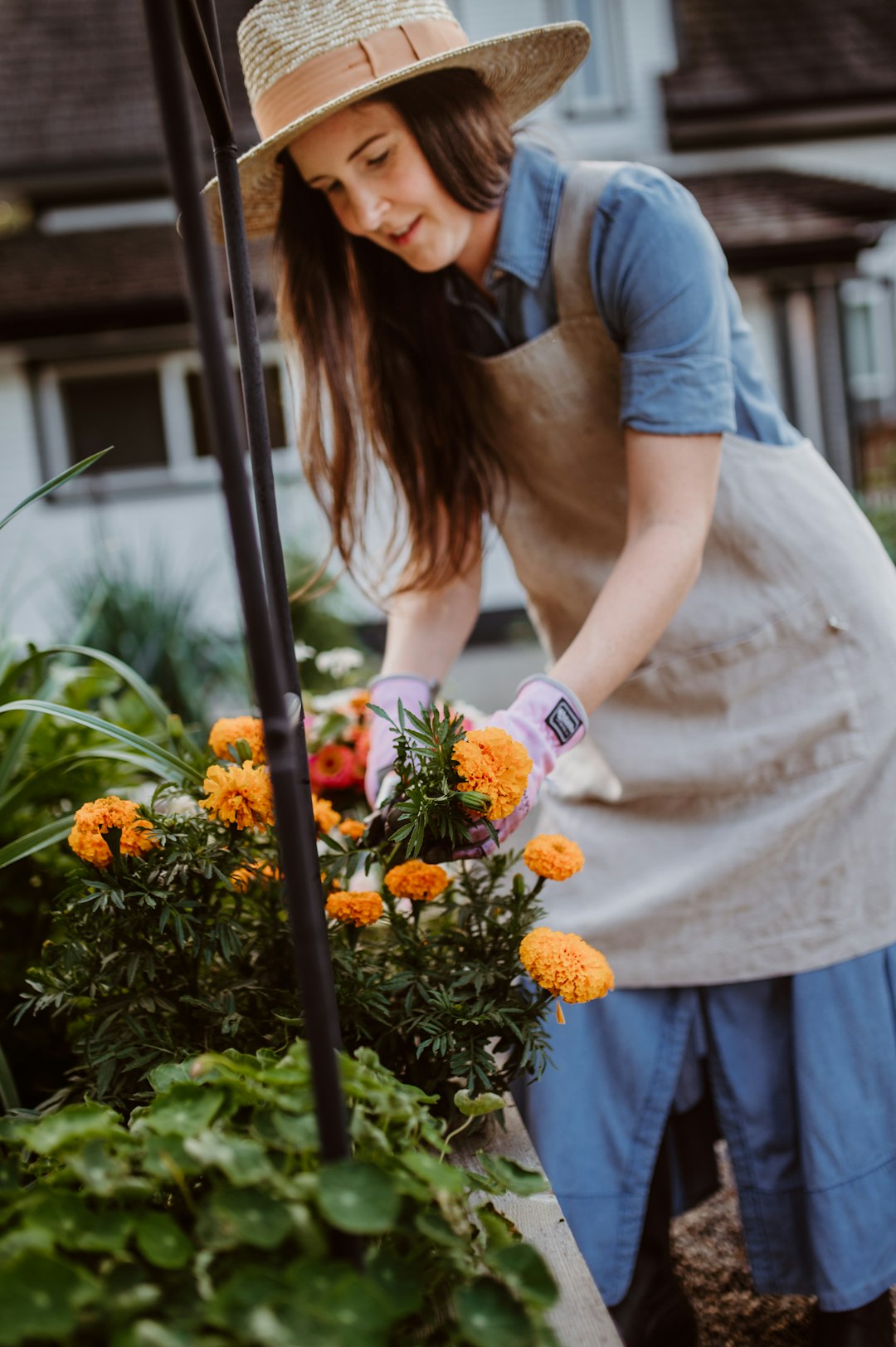
What are the physical and mental health benefits of community gardening?
Community gardening offers a dual boost to both body and mind. Physically, it provides moderate-intensity exercise through activities like digging, planting, and weeding, which can improve cardiovascular health, increase hand strength, and boost vitamin D levels from sunlight exposure. Mentally, gardening reduces stress, anxiety, and depression by fostering mindfulness and a sense of accomplishment. The soil bacteria Mycobacterium vaccae found in garden soil has even been linked to increased serotonin production, enhancing mood. According to the PMC study on gardening and health, these benefits collectively contribute to improved overall well-being.
Read more about “How Can Community Gardens Help With Food Insecurity? 7 Powerful Ways (2025) 🌱”
How can I get involved in local community gardening initiatives in my area?
Getting involved is easier than you think! Start by checking with your local parks and recreation department, community centers, or neighborhood associations. Websites like Community Gardening™ regularly list events and volunteer opportunities. Many cities have community garden networks or urban agriculture programs that welcome newcomers. Don’t hesitate to reach out to local gardening clubs or extension services like your state’s Cooperative Extension for guidance and resources. Remember, community gardens thrive on inclusive participation, so your enthusiasm is the best ticket in!
Read more about “12 Secrets to a Successful Community Garden 🌿 (2025)”
What role does gardening play in building stronger community relationships and social connections?
Gardening is a social glue that brings people together across age, culture, and background. Community gardens create shared spaces where neighbors collaborate, exchange knowledge, and celebrate harvests. This interaction fosters social cohesion, reduces feelings of isolation, and builds trust. Studies, including those cited by Colorado State University’s Extension, show that community gardening increases life satisfaction and community engagement. Plus, gardening events and workshops often spark friendships that extend beyond the garden fence, turning green thumbs into lifelong pals.
Can community gardening help promote environmental sustainability and conservation in urban areas?
Absolutely! Community gardens act as urban green lungs, improving air quality by filtering pollutants and sequestering carbon. They promote biodiversity by providing habitats for pollinators and beneficial insects. Sustainable practices like composting reduce waste and enrich soil health, while rainwater harvesting conserves precious water resources. By growing food locally, community gardens reduce the carbon footprint associated with transportation and packaging. These eco-friendly benefits align perfectly with urban sustainability goals, making community gardens vital players in the fight against climate change.
Reference Links
- Gardening for health: a regular dose of gardening – PMC
- UNC Health Benefits of Gardening
- Colorado State University Extension – Gardening & Mental Health
- Espoma Official Website
- Greenes Fence Official Website
- FCMP Outdoor Official Website
- Nesco Official Website
- Community Gardening™ Benefits of Community Gardens
- Community Gardening™ Community Garden Events
